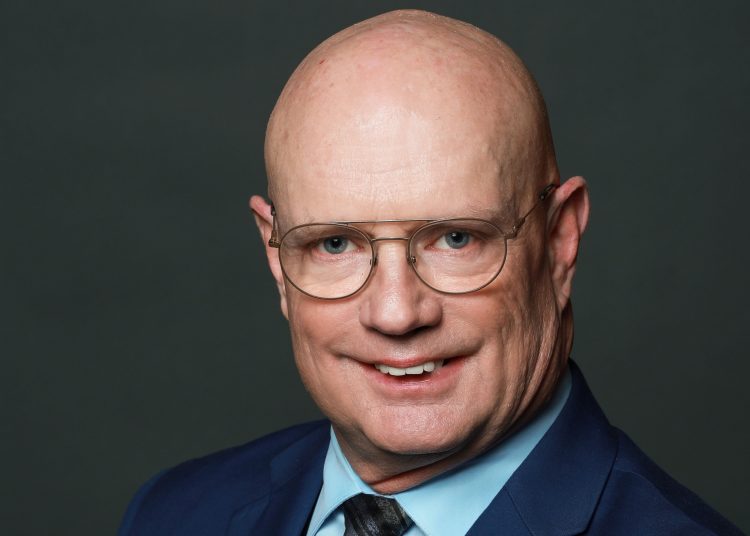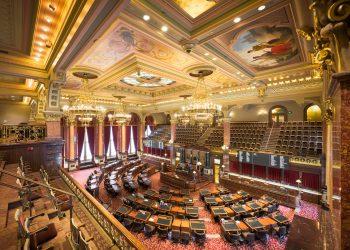As I write my first article of the 90th General Assembly, I could not be more excited by the priorities Governor Reynolds and Republicans in the House and Senate will advance in the 2023 legislative session. The Governor has outlined an ambitious agenda that includes universal school choice in Iowa as well as measures to make our public schools stronger, in addition to continuing to stand up for common sense and the founding principles that have made our state and nation successful. I want to outline the Governor’s STUDENTS FIRST ACT.
Parental choice in education and improving public schools will be one of the top priorities for Republicans this session. The House commitment to get this done is clearly evident in the creation of a special Education Reform Committee, with its members being the leadership of the House – Speaker Pat Grassley, House Majority Leader Matt Windschitl and Speaker Pro Tempore John Wills, as well as the Democrat Minority Leader. The sense of urgency on this issue is also apparent, as the Governor’s STUDENTS FIRST ACT (HSB 1) was our very first bill and was assigned the day after the Governor’s Condition of the State address.
Key provisions of the STUDENTS FIRST ACT include:
- Parents who choose to enroll their children in an accredited private school will receive $7,598 for approved educational expenses, the amount of per pupil funding currently allocated annually by the state for each student. Parents can use these funds for tuition, fees, and other qualified expenses at an accredited private school. This funding will flow through a system that never places the funds directly into the parent’s hands, but rather goes straight to the educational institution.
- Other student funding generated by categorical state funding formulas will remain with public school districts. It is estimated that Iowa’s public schools will retain about $1,205 per pupil in categorical funding for each student who resides in their district but chooses to attend a private school. Since public schools currently receive no funding for students enrolled in a private school, this would be an increase in funding.
- In the first year that a family chooses to send their child to a private school and receive this funding, public schools will still get the $7,598 they normally receive for a student, even though the student chooses to attend a private school. The state in effect will double-pay the first year, which will minimize any funding disruptions for public schools. This is also made necessary by federal requirements related to how public-school students are counted each year. After year one, the public school would continue to receive approximately $1,205 in categorical funding from the state, even though the student is enrolled in a private school, but will no longer receive the $7,598, since those funds are following the child to the accredited school that best fits their needs. It is past time that we fund the student in a way that will help ensure the best educational outcome.
- All students currently attending public school and kindergarten would be eligible for this program in the 2023-24 school year.
- For students already attending an accredited private school, the program would be phased in over a period of three years. In Year 1 (2023-24), accredited private school students at or below 300% of the federal poverty level would be eligible ($83,250 income for a family of four). In Year 2 (2024-25), accredited private school students at or below 400% of the federal poverty level would qualify ($111,000 income for a family of four). In Year 3 (2025-26), all students, regardless of income, would qualify. Let’s remember that we all pay taxes for education, even those citizens that do not have children. Those taxes are paid to the state regardless of income. I believe, therefore, that it is fair that every parent, regardless of income, should have the opportunity to use this system to send their child to an educational institution that best fits their needs.
- The bill also gives public school districts the flexibility to use unspent and ongoing funding from Teacher Leadership and Compensation, Professional Development, and Talented & Gifted categorical funds for increasing teacher salaries. There is currently almost $100 million statewide in unspent funds in these categorical accounts and almost $250 million is allocated to them each year.
Public education funding in Iowa has grown over a billion dollars since Fiscal Year 2012. Unfortunately, some of our public schools are not serving our students well. Teachers, parents, and students are reporting egregious discipline problems in some schools, and a small number are listed as failing schools due to plummeting scores.
Unfortunately, it is also true that some of our public schools have now embraced an ideology that they in fact own the children and know better than parents. Parents that challenge the indoctrination of their students in Anti-American ideology and LGBT objectives that are contrary to their values are increasingly ignored and villainized by a growing number of school districts in Iowa. I know this because I have received hundreds of emails and spoken to numerous parents frustrated and frightened for the future of their children and their country. They are often ignored, berated, silenced, and in some cases villainized by arrogant school personnel who consider themselves “professionals” who can dismiss the concerns of parents. This is not only wrong; it is profoundly dangerous for the future of our Republic. Government institutions do not own our children and have no right to inject themselves between children and parents by assaulting the values of families and ignoring the authority of parents.
In a growing number of our public schools, obviously obscene books that have no place in a school library because they are not age-appropriate are defended and usually kept on the shelves by a process stacked against concerned parents. Meanwhile, some teachers in these districts gleefully promote these books to their students, in defiance of the concerns of parents.
Some schools choose to ignore prohibitions against the teaching of Critical Race Theory, with school officials caught on tape bragging about how they work around the law to advance their agenda. The Board of Education has had the opportunity to enforce the law and hold wrongdoers accountable; unfortunately, they have chosen not to do so.
I have stated repeatedly in my newsletters that superintendents and administrators doing it right should speak to those doing it wrong in Iowa, which could have resulted in self-reflection and a course correction. Unfortunately, this either has not happened, or the warnings have not been heeded. Combine these facts with the need to ensure that students are allowed to flourish in an educational setting that best fits their needs and the path is clear: we must fundamentally change how we fund education, and that begins with funding the student, as opposed to funding the educational establishment.
The hysteria that School Choice will destroy, or damage public schools is not supported by facts, as states with aggressive school choice programs in place for over two decades see only about 5% of students attend private schools. If in fact, a huge number of students were to leave public schools to attend accredited private schools, then it becomes profoundly clear just how important it was that we gave parents greater choice, since such an exodus would lay bare the reality that these schools were failing our students. I believe that most of our public schools are doing it right, and for those that are not, the wake-up call is coming.
Discussions have just begun and changes to this plan are possible as we move through the process, but I am committed to passing school choice, in addition to education reforms to make our public schools stronger and better, since the vast majority of our students will continue to attend public schools. For many in rural districts happy with their schools and great teachers, because they are doing it right, you can rest assured, in spite of the coming hysteria, that school choice options in other states have improved education outcomes in both public and private schools.
Read the bill as introduced below:
HSB1















